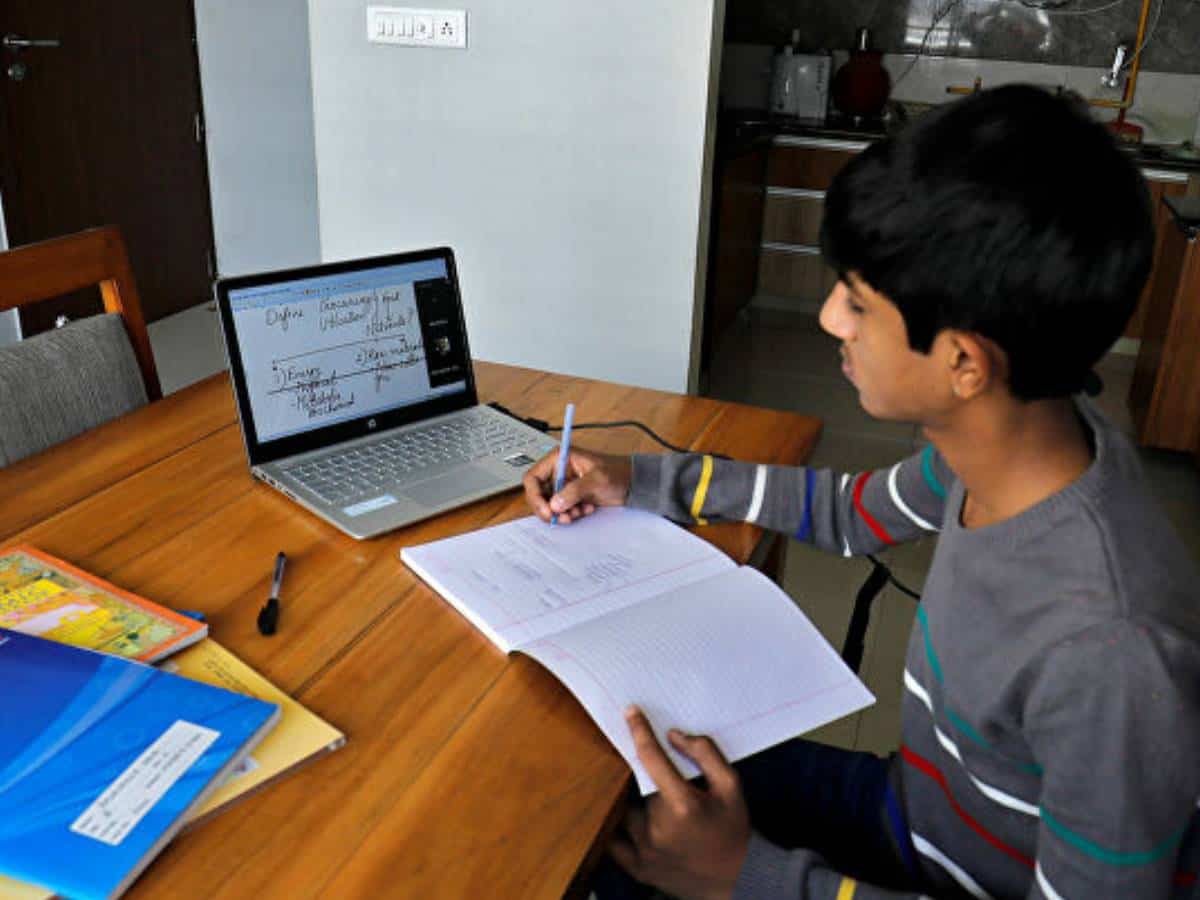Hyderabad: The long hours children spend on computers and smart phones for online classes as schools remain shut due to the COVID-19 pandemic is beginning to bother parents as complaints of headaches, eye problems and stress surface, it has been learnt.
The Ministry of Human Resource Development (MHRD) recommended just 30 hours of screen time for pre-primary students, two classes of 45 minutes each for classes 1 to 8 and four classes of 45 minutes each for classes 9 to 12, but that’s not working, parents allege. Many schools are not following the directions, which anyway are not binding.
Classes go on for longer than expected. “My children recently developed fever and headaches after attending online classes and I had to take them to the doctor,” said Asif Hussain Sohail, Telangana Parents Association.
About his two children in Class 7 at a private school said, “They had only one class initially, which has now increased to four. Sometimes lessons are extended till the evening after which the children have to complete homework. We try to have 10 minute breaks for them to relax and wash their eyes, but there is a visible redness in their eyes now which makes me very concerned as a parent.”
Some parents are reporting mental health issues too due to excessive use of gadgets. One of the parents suspects that his children have increased mood swings now. “They are already cooped up at home and are getting cranky and restless. After their online classes I find they are unable to focus on their work and suffer from headaches,” he says.
Calling screen addiction among children a growing concern: Psychologist
Calling screen addiction among children a growing concern, Dr Adarsh Kohli, professor of clinical psychology at the Post Graduate Institute of Medical Education and Research, Chandigarh compares it to cannabis addiction, “Too much exposure to screens of mobiles and laptops leads a feeling of isolation and anxiety in the current scenario. It can lead to depression and an increase in neurotic traits such as nail biting, thumb sucking and hair pulling,” she says.
This can have an adverse physical impact on children and lead to eye strain on eyes and ears, obesity and disturbed sleep patterns, she adds.

